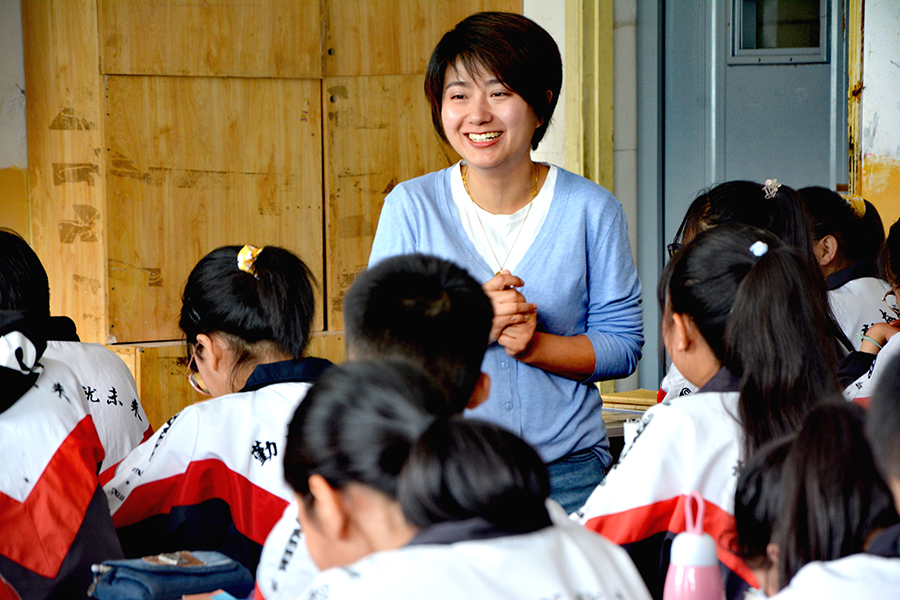In a class of her own


Li went to the school after she applied to participate in an education aid project that sends volunteers to work as short-term teachers at schools in poverty-stricken regions. Li thought she was "lucky" since the place she went to was not that poor, at least "we are not short of water or electricity".
As a large-scale junior middle school in Linxia, Hanji school boasts nearly 30 classes per grade, and the three grades combined have more than 5,600 students. Of these, 3,800 are boarders.
Li tried to build good relations with the two classes of students assigned to her, but the majority failed to hand in their homework, or be attentive in her class. She knew she had a struggle on her hands but was determined to make it work.
After talking with students, Li got to know that more than 60 percent of them were from the Hui ethnic group. Their families, traditionally, were in the low-income bracket and work and payment often took priority over education.
"Students seemed to lack the motivation to study," Li says.
Li found that the students didn't have the solid foundation that primary school should have given them and she became depressed during the first semester. On top of this, the students and the school were recipients of financial aid from the authorities and it seemed a shame, she says, to see opportunities not taken.
"I have worked as a teacher for nearly 10 years, but never met such a situation. I just didn't know upon which aspect I should concentrate in order to help them," she recalls.
Li was determined to make a difference. "I thought that since I came to the school, if I could make some changes, no matter how minor, my stay would be worthwhile," says Li.
She prepared a small notebook, talked with the students one by one like friends and noted down information about their situations. Her frankness soon opened the door to students' hearts, and often both Li and her students became emotional during the hourlong talks.
She found many of them were left-behind children whose parents migrated for work, while some had seen their parents get divorced. She tried to give them more care by talking with them frequently and helping them face their difficulties and solve their problems.




































